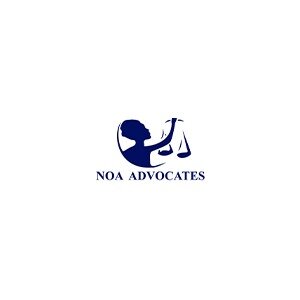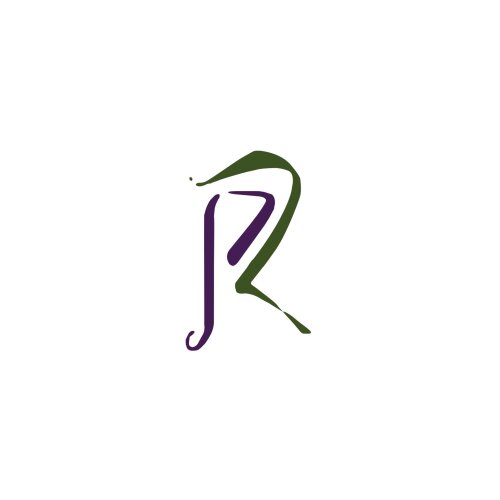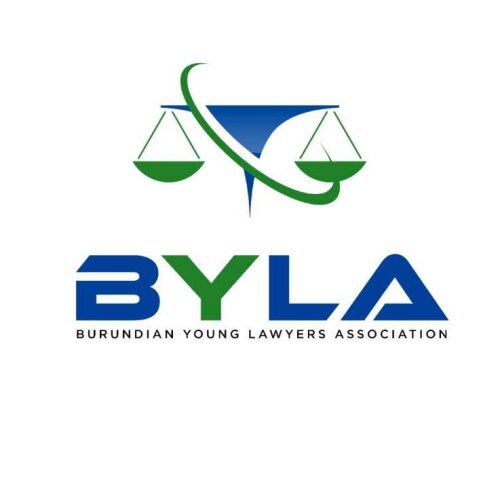Best Sanctions & Export Controls Lawyers in Burundi
Share your needs with us, get contacted by law firms.
Free. Takes 2 min.
Or refine your search by selecting a city:
List of the best lawyers in Burundi
About Sanctions & Export Controls Law in Burundi
Sanctions and export controls in Burundi refer to the legal measures that regulate or restrict certain trade activities, financial transactions, and cross-border dealings to align with national interests and international obligations. Burundi, as a member of the United Nations and African Union, adheres to global and regional sanctions regimes. While the country develops its own policies, it also enforces international sanctions, particularly concerning security, anti-terrorism, arms control, and economic restrictions targeting specific countries or entities. Export controls in Burundi mainly involve the regulation of strategic goods such as weapons, dual-use items, and sensitive technologies to prevent misuse that could compromise national and international security.
Why You May Need a Lawyer
There are various situations where individuals or businesses may require legal assistance with sanctions and export controls in Burundi. Common scenarios include:
- Engaging in international trade and needing to ensure compliance with both Burundian and external export restrictions
- Dealing with asset freezes, bans, or financial restrictions imposed by national or international authorities
- Facing legal action or penalties for alleged violations of sanctions or export control laws
- Seeking licenses for the export or import of controlled goods such as military equipment or sensitive technology
- Understanding how African Union or United Nations sanctions may impact business operations in Burundi
- Handling compliance audits or investigations regarding international trade practices
- Advising on contractual agreements that might be affected by sanctions or export restrictions
- Guidance on dealing with customers or partners who are subject to embargoes or restrictive measures
Legal specialists can help clarify complex regulations, avoid inadvertent violations, and protect your interests if accused of breaching any sanctions or export control requirements.
Local Laws Overview
Burundi’s legal framework related to sanctions and export controls aligns with both national policy objectives and binding international commitments. Some key aspects include:
- Adherence to International Sanctions: Burundi implements UN Security Council and African Union sanctions, covering arms embargoes, asset freezes, and travel bans against specific individuals, entities, or countries.
- National Export Controls: Exports of arms, dual-use goods, and sensitive technology are regulated and often require authorization from relevant state agencies.
- Customs Regulations: The Burundian Customs Code sets out rules for import and export, including inspection and declaration requirements, and penalties for smuggling or non-compliance.
- Financial Restrictions: Banks and financial institutions must comply with restrictions on transactions that could breach national or international sanctions.
- Enforcement and Penalties: The Burundian government, through various ministries and the judiciary, can impose fines, revoke licenses, or pursue criminal charges for violations of sanctions or export laws.
While specific regulations can change based on evolving national and international priorities, adherence to these laws is crucial to operate lawfully in Burundi’s commercial and trade environment.
Frequently Asked Questions
What are sanctions in the context of Burundian law?
Sanctions are legal measures set by the government or recognized international bodies that restrict trade, financial transactions, or activities with certain countries, individuals, or organizations to achieve foreign policy, national security, or humanitarian goals.
What types of goods are typically subject to export controls in Burundi?
Export controls in Burundi often cover weapons, military equipment, dual-use items (goods and technologies with both civilian and military uses), and certain sensitive materials or technologies.
How can I find out if my business partners are subject to international sanctions?
You can verify the status of your potential partners through official UN and African Union sanctions lists, as well as by consulting local authorities or legal experts knowledgeable in sanctions compliance.
What penalties exist for violating export controls or sanctions in Burundi?
Penalties may include fines, confiscation of goods, loss of import-export licenses, or even criminal prosecution, depending on the severity and nature of the violation.
Does Burundi recognize international sanctions from outside Africa?
Burundi primarily enforces UN and African Union sanctions. While it is not legally bound to unilateral sanctions from other countries, such measures may still impact Burundian entities trading internationally.
What government body handles export licenses in Burundi?
Export licenses for controlled goods are typically managed by the Ministry of Commerce, in conjunction with other agencies, such as Customs and the Ministry of Defense for military-related items.
How can I apply for an export license in Burundi?
Applications can be submitted to the Ministry of Commerce, providing detailed information about the goods, destination country, and end user. Specific documentation or security checks may be required for controlled goods.
What should I do if my goods are detained at the border?
You should promptly contact customs officials for clarification and, if needed, seek legal assistance to ensure compliance or to resolve any allegations of non-compliance with export controls or sanctions.
Are financial transactions with certain countries forbidden?
Yes, financial transactions with countries, entities, or individuals subject to sanctions may be restricted or prohibited by law. It is essential to verify compliance before transferring funds internationally.
Can I appeal a government decision related to sanctions or export controls?
Yes, decisions such as license denials or penalties can generally be appealed through the administrative or judicial system in Burundi. Seeking a legal expert's help can improve your chances of a successful appeal.
Additional Resources
Several resources and organizations in Burundi can assist with sanctions and export controls compliance:
- Ministry of Commerce, Industry and Tourism - oversees export control and trade licensing
- Customs Department under the Ministry of Finance, Budget and Economic Planning - regulates import and export procedures at the border
- Burundi Revenue Authority - provides guidance on tariffs and customs regulations
- Ministry of Foreign Affairs and Cooperation - can provide updates on international obligations and sanctions implementation
- Burundi Bar Association - offers legal directories for finding qualified lawyers specializing in international trade and sanctions law
- United Nations and African Union official portals for updated sanctions lists
Next Steps
If you believe you need legal assistance with sanctions or export controls in Burundi, follow these steps:
- Document your trade activities and any notices or penalties received
- Consult with a legal expert who specializes in sanctions and export controls law, preferably one familiar with both local and international regulations
- Prepare all necessary documents, such as contracts, correspondence, and export licenses, to assist your legal counsel in understanding your case
- Reach out to relevant government departments for clarification or to initiate an appeal if needed
- Stay proactive about compliance by regularly reviewing updated laws and international sanctions lists
Taking timely action and seeking expert legal advice increases your chances of resolving issues efficiently while minimizing the risk of penalties and business disruptions.
Lawzana helps you find the best lawyers and law firms in Burundi through a curated and pre-screened list of qualified legal professionals. Our platform offers rankings and detailed profiles of attorneys and law firms, allowing you to compare based on practice areas, including Sanctions & Export Controls, experience, and client feedback.
Each profile includes a description of the firm's areas of practice, client reviews, team members and partners, year of establishment, spoken languages, office locations, contact information, social media presence, and any published articles or resources. Most firms on our platform speak English and are experienced in both local and international legal matters.
Get a quote from top-rated law firms in Burundi — quickly, securely, and without unnecessary hassle.
Disclaimer:
The information provided on this page is for general informational purposes only and does not constitute legal advice. While we strive to ensure the accuracy and relevance of the content, legal information may change over time, and interpretations of the law can vary. You should always consult with a qualified legal professional for advice specific to your situation.
We disclaim all liability for actions taken or not taken based on the content of this page. If you believe any information is incorrect or outdated, please contact us, and we will review and update it where appropriate.
Browse sanctions & export controls law firms by city in Burundi
Refine your search by selecting a city.












